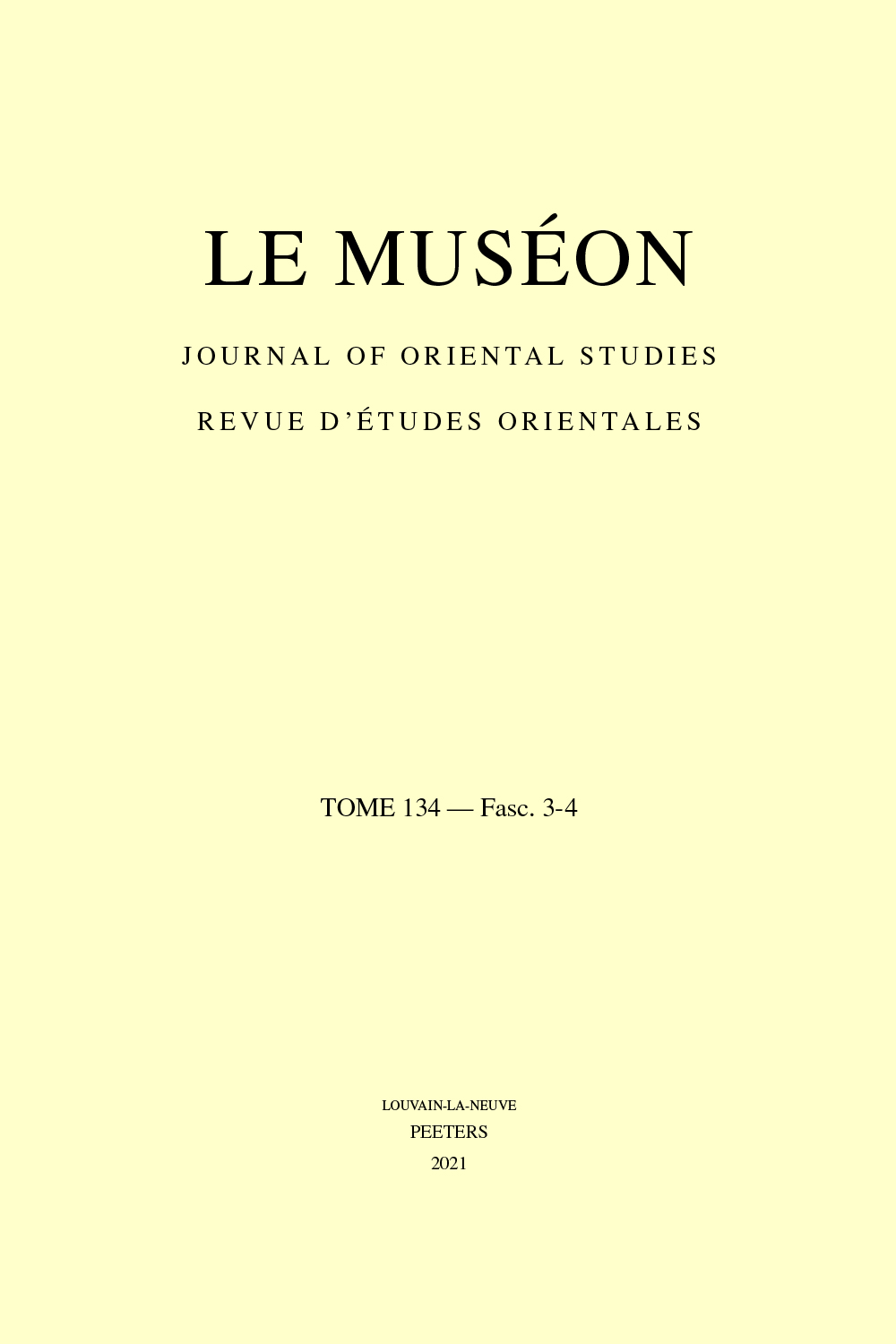 previous article in this issue previous article in this issue | next article in this issue  |

|
Document Details : Title: 60 Years after Peter Kawerau Subtitle: Remarks on the Social and Cultural History of Syriac-Orthodox Christians from the XIth to the XIIth Century Author(s): WELTECKE, Dorothea Journal: Le Muséon Volume: 121 Issue: 3-4 Date: 2008 Pages: 311-335 DOI: 10.2143/MUS.121.3.2034324 Abstract : The paper takes the opportunity of the 60th anniversary of the completion of Peter Kawerau’s doctoral dissertation Die jakobitische Kirche im Zeitalter der syrischen Renaissance: Idee und Wirklichkeit to discuss its merits and disadvantages as well as the present state of social historical research. Thanks to its systematic approach, Kawerau’s work proves an excellent starting point for research in social and cultural history even today. New research questions arose mainly in the fields of female religiosity versus male religiosity and church hierarchy, secular professionals and secular scholars versus ecclesiastical scholars, social structures of lay groups, either in the city or in rural areas, elite and underpriviledged. At the same time theoretical and empirical methods have been established during the last decades, which were not available at Kawerau’s times. Compared to the state of the arts in the study of the Latin Middle Ages or of Muslim societies the social and cultural history of the Syriac-Orthodox Church is still at its beginning. Through Bertold Spuler’s initiative, however, Peter Kawerau developed a systematic approach for the analysis of the history of the Syriac-Orthodox Church not only as the history of a religious institution, but as the history of a social group within the Near Eastern worlds. This achievement remains a landmark and a challenge to present day research. |
|
